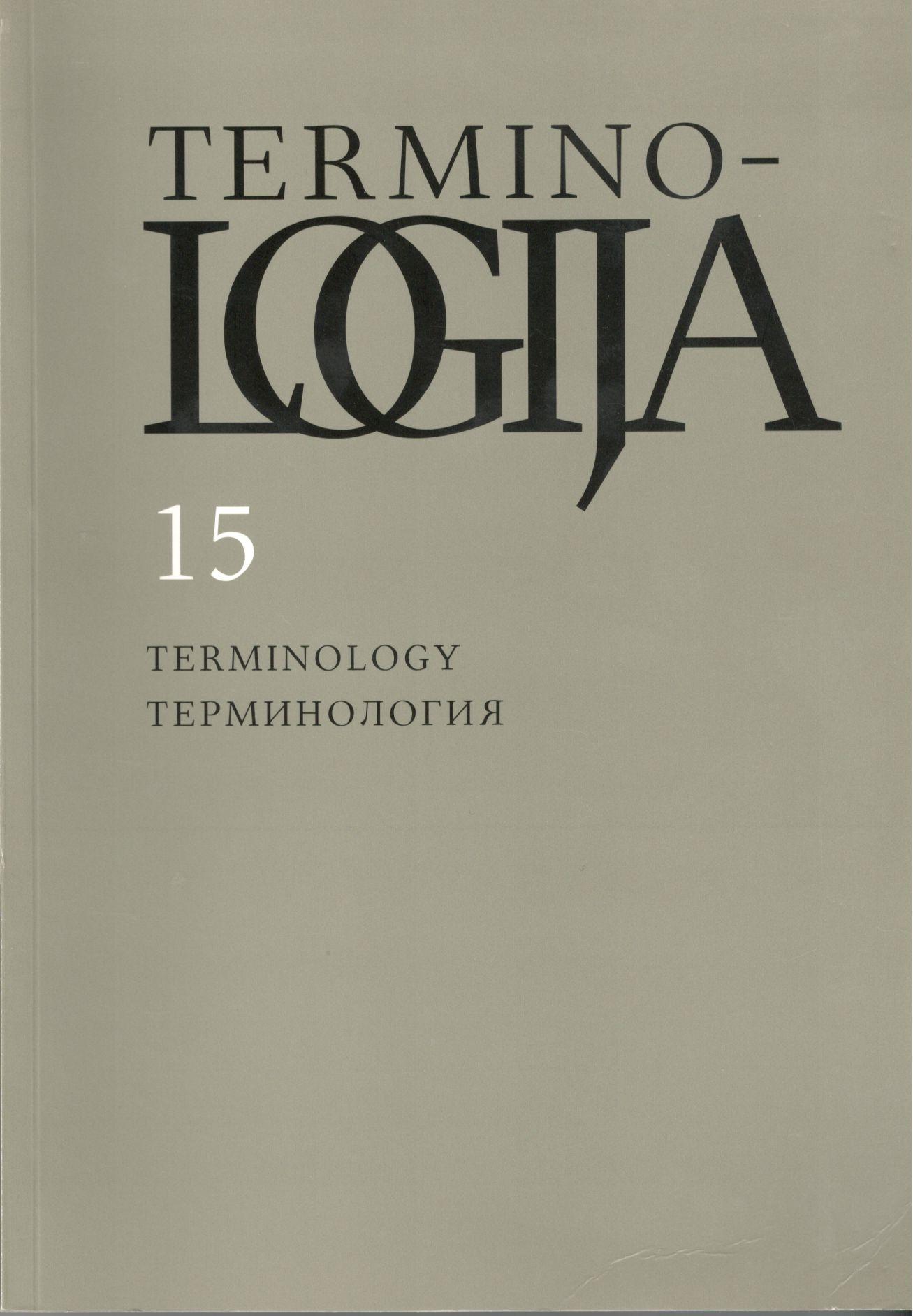Lietuvių kalba ir visuomenė: bendrasis ir terminologinis aspektai
The Lithuanian language and society: general and terminological aspects
Author(s): Jonas KlimavičiusSubject(s): Language and Literature Studies, Lexis, Sociolinguistics, Descriptive linguistics, Baltic Languages, Philology
Published by: Lietuvių Kalbos Institutas
Keywords: state language; globalization; native language; linguae francae; terminology;
Summary/Abstract: Questions of the usage of languages, their changes, their future and even their fate are often very directly linked with globalization. Another word frequently used is challenges (by Arnold Toynbee). Answers are not so loud and often there are no attempts made to understand what globalization is. Its genesis and concepts allows us to separate cultural globalization and within it – globalization of languages, i.e. global tendencies of the usage of languages. Also globalism – an ideology of globalization or a theory of global international politics – stands out together with anti-globalism, which at least for now has a confused and negative theoretical background and is associated with too many aggressive actions of protest and even terror. Thus globalization is a rather direct threatening factor for the usage of languages and an unfavourable background for the functioning and usage of the language.Concentration of everybody’s full attention only on the impact of undefined globalization is wrong not only because of its one-sidedness, but also because other more important and specific factors are forgotten or hushed up and they are and were abundant. On the other side of the iron curtain the ugly phenomena of the 20th century were flourishing, directly impacting upon as well as causing a negative background for the functioning of language in general and small languages in particular. Such phenomena include consumer and mass society, disposable civilization, marketing, advertising, agitation, mass media and especially commercialisation of television, mass culture, three minute culture, fashion, creation of stars, Americanization of culture (pop music, Hollywood films, westerns, TV serials, soap operas, ...). In general terms a common denominator of these phenomena is their tendency to make a man and a life primitive, specifically the creation of a wooden language. These phenomena, strongly attacked by soviet anti-American propaganda and to some extent evaluated in Lithuanian philosophical discourse after the fall of the iron curtain swept into Lithuania, to the weary spirit of which everything coming from the West seemed to be good. At the same time fifty year old truths about our own life in the evil empire – new language, thought police, double think, enslavement of the mind – reached us from the West as well. These truths reached us, but did not have the right impact on us. Together with such things as the disintegration of the evil empire, restoration of the independence of Lithuania, status of the Lithuanian language as a state language, national rebirth, democratisation of the society and the creation of a civil society, European and transatlantic integration of Lithuania, came unofficial Anglization, computerization and internetization which are now very specific factors, the importance of which to national identity and selfawareness, culture and language has been considerable for twenty years and will remain crucial and epochal for a long time.Every language is ethnic or national – native. Our native language – Lithuanian – for a few centuries under the conditions of continuous subordinate bilingualism had very many contacts with the Polish language – the whole area of the Lithuanian language was flooded with it. Only a few consequences have been eliminated, and although contacts with Polish have for some time been almost broken, the majority of losses are, like loss of national territory, irreversible. For two centuries a similar destructive work in the Lithuanian language area was done by the Russian language. Now a new era of contacts with the English language has arrived – territory is not being lost, but a part of the Lithuanian language speakers are. Therefore it is useful to get acquainted with these imperial, colonial as well as international languages (and linguae francae) from inside – how they are perceived and judged by Russians and English themselves. It is important to remember that the essence of linguae francae is only the performance of the communicative function. This is not enough for the national language to live and survive – it could cause death. The Lithuanian language has a dead sister – the Prussian language. The area of the Lithuanian language has crumbled away in the west and in the southeast and it is not even continuous within the state borders. Speakers of a big language can have a theoretical discussion if the language is or is not an obligatory element of nationality and statehood. A Lithuanian can speak here only about lucky or unlucky (for himself!) exceptions. Only the old nearly universal order provides guarantees: only a national state language is safe or: a state is its own language. Although the world is bilingual (mostly in that communicative function), bilingualism is a characteristic not of big, but of small languages and it implies subordination, thus some dangers.In the theory of Lithuanian linguistics, the communicative function is considered to be neither the only, nor the main one. Simas Karaliūnas separates the ethnic function as well. Various journalists, specialists of culture and other provincials of the time (avant nous, le Déluge) are talking only about the means of communication, demanding unrestricted development of the language, declaring anticodification attitudes, rights and validity of jargon and similar good willed ignorance and demonising linguists. They defeat some linguists because of the lack of solidarity and culture of the latter. Lithuanian linguists dare to challenge anti-cultural globalization and sometimes win. The force of terminologists is small, but they publish the scientific (international from the 13th issue) magazine Terminologija (Terminology). The principle of state protection of the Lithuanian language is being implemented although not consistently.
Journal: Terminologija
- Issue Year: 2008
- Issue No: 15
- Page Range: 56-104
- Page Count: 49
- Language: Lithuanian

